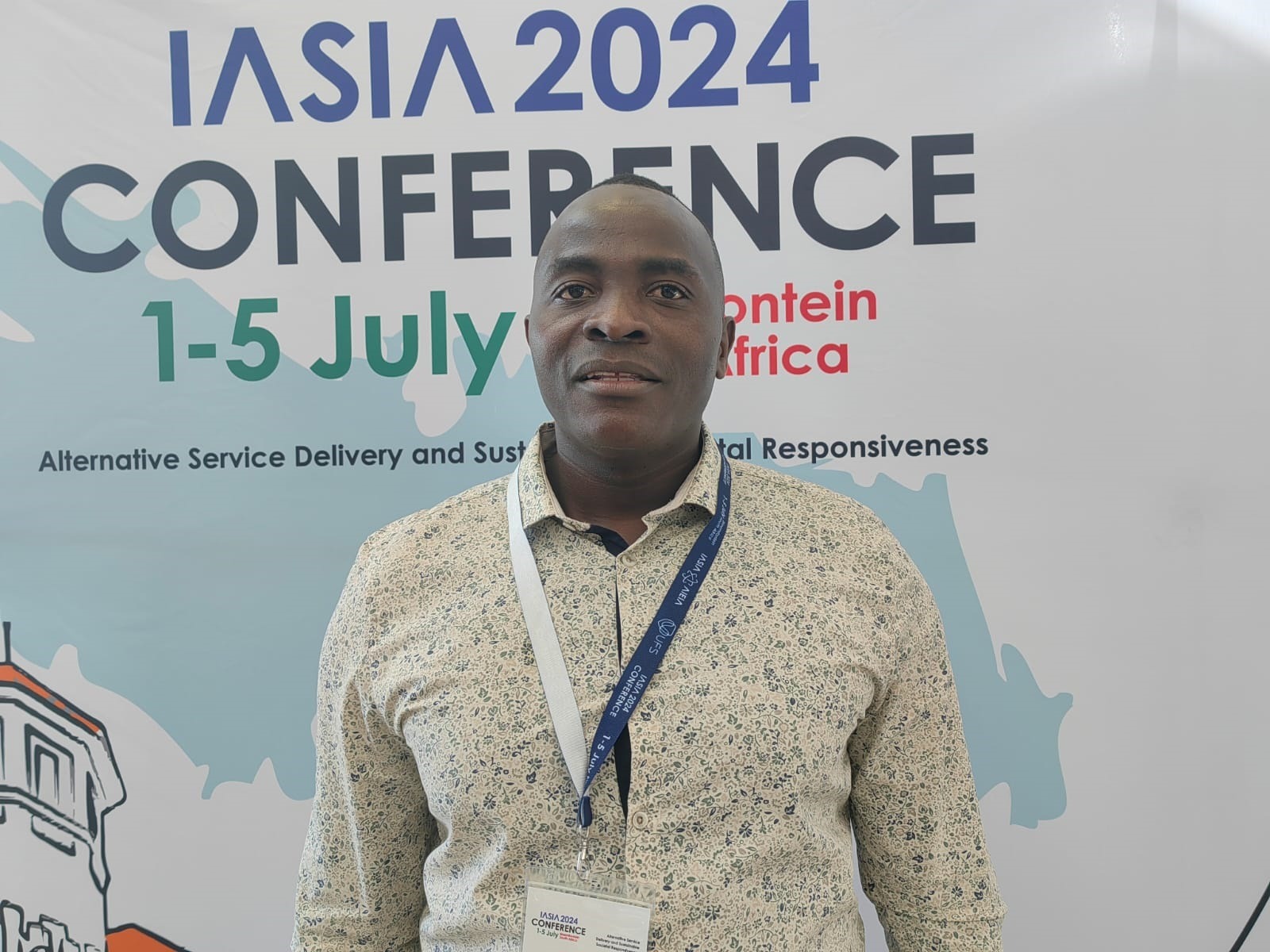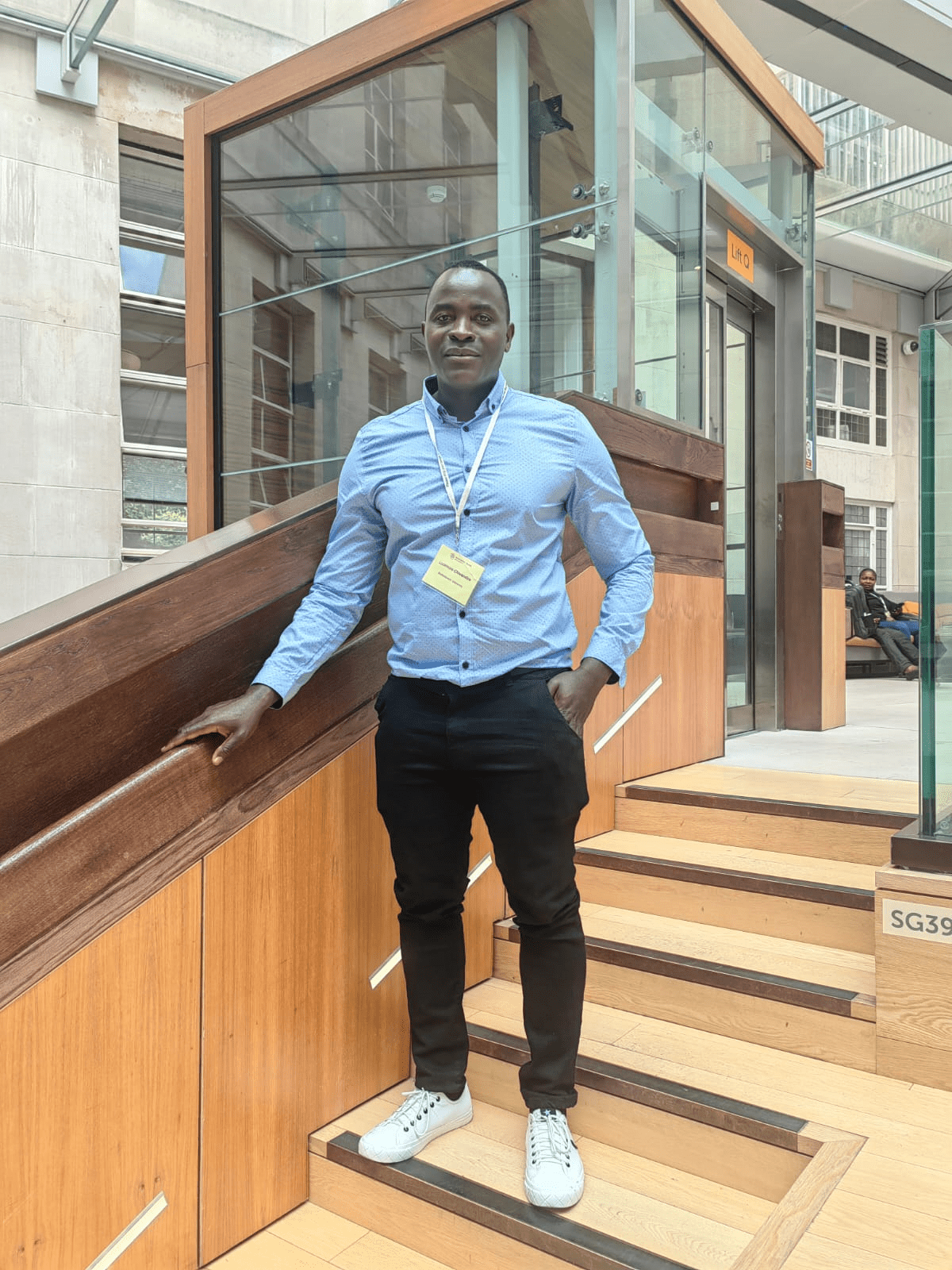
Dr Luckmore Chivandire, consolidoc fellow at the Africa Centre, recently presented papers at international and SA conferences, with both being prestigious events aligned to his interests and fields of research.
While Luckmore’s main research area as part of his consolidoc fellowship is corruption and health, these conferences were organised around specific themes. This gave him the opportunity to explore topics that are aligned with some of his other research interests and passions, namely governance and development issues.
The DSA2024, organised by the UK-based Development Studies Association, took place at SOAS University of London from 26 to 28 June. The conference theme was “Social justice and development in a polarising world”, based on the issue of social justice underpinning most global development discourses, practice and policy. There was a particular focus on three core strands of social justice perspective within development theory, namely rights and representation, redistribution and restoration, and reproduction and production.
In line with this theme, Luckmore presented a paper titled “Exploring the link between political power dynamics and minority rights: A case study of ethnic minorities in Zimbabwe”. In this paper, he investigated how political power structures influence the rights and treatment of Zimbabwe’s ethnic minorities, highlighting the struggles and resilience of these communities in the broader political landscape. Luckmore’s participation at DSA2024 speaks volumes about his growing research acumen: only 416 of 1 000 applicants were accepted to present at the DSA2024, and only 44 delegates received funding, including Luckmore.
The IASIA 2024 conference – the annual conference of the International Association of Schools and Institutes of Administration – was held in Bloemfontein in cooperation with the University of the Free State from 1 to 5 July. Sessions and discussions were focused on the theme of alternative service delivery and sustainable societal responsiveness. It acknowledges that public institutions and governments across all levels and sectors have been faced with an intricate network of global, regional and national challenges, such as geopolitical tensions, climate change and migration. With traditional government models historically having struggled to address these issues, the public sector has opened the door for other actors and stakeholders to provide critical services to enhance efficiency, responsiveness, inclusiveness, collaboration, coproduction and cocreation, as well as accountability.
At the IASIA conference, Luckmore presented on intersectoral collaboration as a catalyst for informal settlement reform in Harare in his home country of Zimbabwe. “This presentation focused on the importance of collaborative efforts between various sectors in addressing the challenges faced by informal settlements in Harare,” he explained. “It emphasised the need for integrated governance approaches to drive sustainable urban development.”
Luckmore describes both conferences as enriching experiences, not only professionally but also personally. “It has allowed me to expand my network, gain new insights into my research field, and share my work with a global audience,” he says. When asked about specific highlights, Luckmore pointed out insightful feedback and comments he received from seasoned academics from around the world and networking with some of the foremost scholars in his research field. “These interactions gave me new perspectives and paved the way for potential collaborations.”
Luckmore thanks Prof Pregala Pillay from the School of Public Leadership, who covered all his expenses for the IASIA conference; Dr Munya Saruchera, his supervisor at the Africa Centre, who provided valuable research guidance and support, the Journal of Development Studies, SOAS University of London, the Development Studies Association and Stellenbosch University for their support that enabled him to make of these opportunities.


Dr Luckmore Chivandire at SOAS University of London (left) and at the University of the Free State (right), where he presented papers at the DSA2024 and IASIA 2024 conferences respectively, along with other leading researchers from across the globe.
